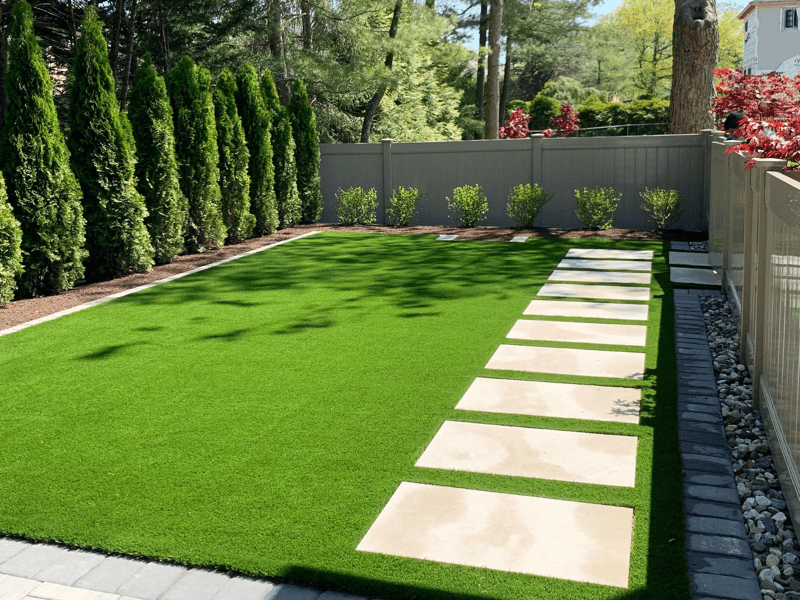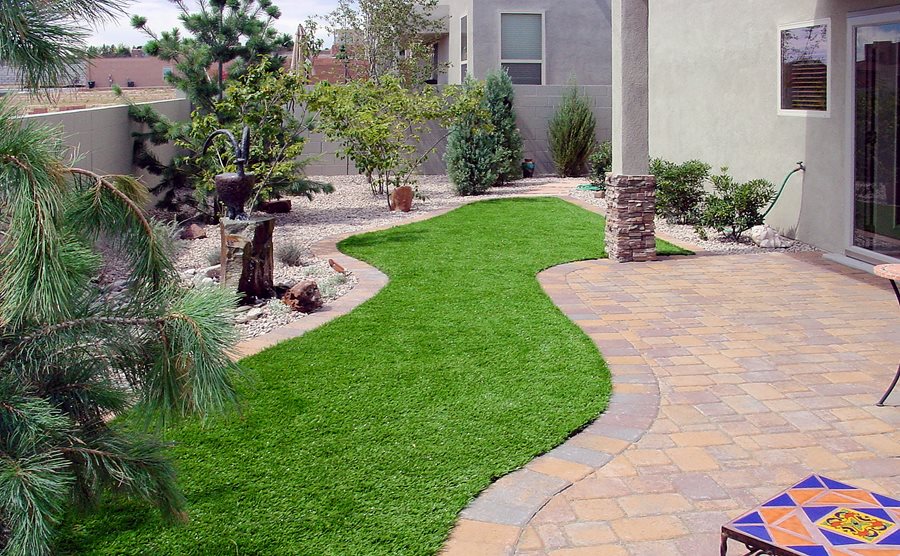Choose the Best Artificial Turf Companies Phoenix for Your House or Commercial Space
Choose the Best Artificial Turf Companies Phoenix for Your House or Commercial Space
Blog Article
Explore the Environmental Advantages of Opting for Synthetic Grass Solutions
The fostering of synthetic grass solutions presents an engaging opportunity to address pressing ecological challenges. By substantially minimizing water use and decreasing the application of harmful chemicals, these choices not only promote sustainable landscaping yet also secure regional ecological communities. The reduced carbon impact associated with decreased upkeep tasks contributes to a much more lasting approach to land monitoring. However, the ramifications of these advantages extend beyond simple preservation initiatives, increasing inquiries regarding their lasting effect on habitat preservation and overall ecological equilibrium. Exploring these dimensions exposes an intricate interaction worth taking into consideration.
Water Conservation Perks
One of the most considerable advantages of man-made lawn is its capability to conserve water. In contrast, fabricated grass does not require watering, significantly minimizing the overall need for water resources.
By eliminating the need for regular watering, synthetic grass adds to lasting landscape practices and aids reduce the ecological impact of excessive water consumption. The conservation of water extends to the reduction of runoff, which can lead to dirt disintegration and river pollution.
In addition, the setup of synthetic grass permits home owners and communities to assign water sources more efficiently, concentrating on essential usages such as alcohol consumption water and farming. The change in the direction of synthetic grass not just promotes liable water usage yet also straightens with broader ecological objectives focused on protecting natural deposits.
As neighborhoods progressively focus on sustainability, the water preservation benefits of synthetic grass present a compelling situation for its adoption in domestic and commercial landscaping tasks.
Lowered Chemical Usage
The transition to artificial lawn substantially reduces the dependence on chemical therapies commonly used in all-natural yard maintenance. Standard grass monitoring generally entails the application of herbicides, chemicals, and fertilizers to promote development and control pests. These chemicals can pose dangers to human health, neighborhood wild animals, and the environment, adding to soil and water contamination.
In contrast, synthetic lawn eliminates the demand for these damaging compounds. When mounted, it calls for marginal upkeep, largely containing routine cleansing and irregular infill replenishment. This reduction in chemical usage not only profits the prompt setting yet likewise contributes to wider eco-friendly security. By lessening the release of artificial compounds right into the ecological community, synthetic grass advertises healthier dirt and water systems.
In addition, the absence of chemical overflow linked with synthetic grass installments helps protect local rivers from air pollution, sustaining aquatic life and preserving biodiversity. Artificial turf companies phoenix. As neighborhoods increasingly focus on sustainable techniques, going with man-made lawn offers a viable solution that straightens with environmental conservation goals. Through this shift, homeowner can delight in lavish eco-friendly rooms without jeopardizing environmental health and wellness, leading the way for an extra sustainable future
Lower Carbon Footprint

In addition, the installment of synthetic lawn can result in considerable water preservation. go now Natural yards call for considerable amounts of water for watering, which not only includes in the carbon footprint connected with water removal and therapy but additionally pressures local water sources. On the other hand, synthetic grass needs very little upkeep, calling for no watering, thus considerably reducing water usage and its connected power prices.
In addition, the longevity of synthetic grass adds to its lower carbon influence. With a lifespan of see this website as much as 15 years or more, the need for constant substitutes is diminished, resulting in less waste and lower energy consumption in manufacturing and taking care of standard turf options. Generally, fabricated lawn offers a lasting option for ecologically mindful landscaping.
Habitat Preservation
Environment conservation is an essential factor to consider in the dispute over landscape design options, specifically when contrasting synthetic turf to all-natural turf. Natural turf lawns commonly need extensive maintenance, consisting of making use of pesticides, herbicides, and plant foods, which can negatively impact local communities. These chemicals can seep into the soil and rivers, damaging native flora and animals and interfering with local environments.
In contrast, man-made turf provides an opportunity to decrease the ecological impact of landscaping. By selecting artificial turf, homeowners can reduce the disturbance of natural environments related to conventional yard care methods. Synthetic grass eliminates the requirement for dangerous chemicals, consequently shielding nearby wildlife and keeping the integrity of surrounding communities. The installment of artificial turf can lead to the conversion of former lawn locations into even more biodiverse landscapes, such as pollinator gardens or native plant areas, which can sustain local wildlife.
Ultimately, the transition to synthetic grass not only preserves water and minimizes maintenance initiatives however likewise cultivates a more harmonious connection in between human tasks and the natural surroundings, promoting environment preservation while doing so.
Long-Term Sustainability
Long-lasting sustainability is a critical consider examining the benefits of synthetic grass over traditional lawn yards. One of the most substantial advantages of artificial grass is its durability; it can last approximately 15-20 years with minimal upkeep, whereas all-natural lawn requires regular reseeding and substitute. This longevity minimizes the demand for continuous resources, such as water, fertilizers, and pesticides, which are crucial for keeping a healthy grass lawn.
In addition, fabricated turf contributes to a reduction in carbon exhausts linked with lawn treatment equipment. Traditional grass usually call for gas-powered lawn mowers, trimmers, and blowers, every one of which contribute to air contamination. Artificial turf companies phoenix. In contrast, fabricated grass removes the need for such tools, promoting official site a cleaner environment
Moreover, the production of synthetic grass significantly uses recycled materials, improving its sustainability profile. As makers adopt environmentally friendly methods, the environmental impact of synthetic grass remains to decrease.

Verdict
The fostering of synthetic grass options presents significant ecological benefits, consisting of significant water preservation, reduced dependence on damaging chemicals, and a lower carbon footprint. Fabricated lawn aids in protecting natural environments by decreasing land disturbance and advertising lasting sustainability through the usage of durable products. Jointly, these aspects underscore the capacity of synthetic grass to add positively to environmental health and wellness and provide a feasible choice to standard landscape design methods in a progressively resource-conscious world.
In comparison, artificial lawn does not require watering, considerably reducing the total demand for water sources. By minimizing the release of synthetic substances into the environment, synthetic grass advertises healthier soil and water systems.
Additionally, the installment of man-made lawn can result in significant water preservation. In contrast, man-made lawn requires marginal upkeep, needing no watering, thereby dramatically lowering water usage and its associated energy prices.

Report this page